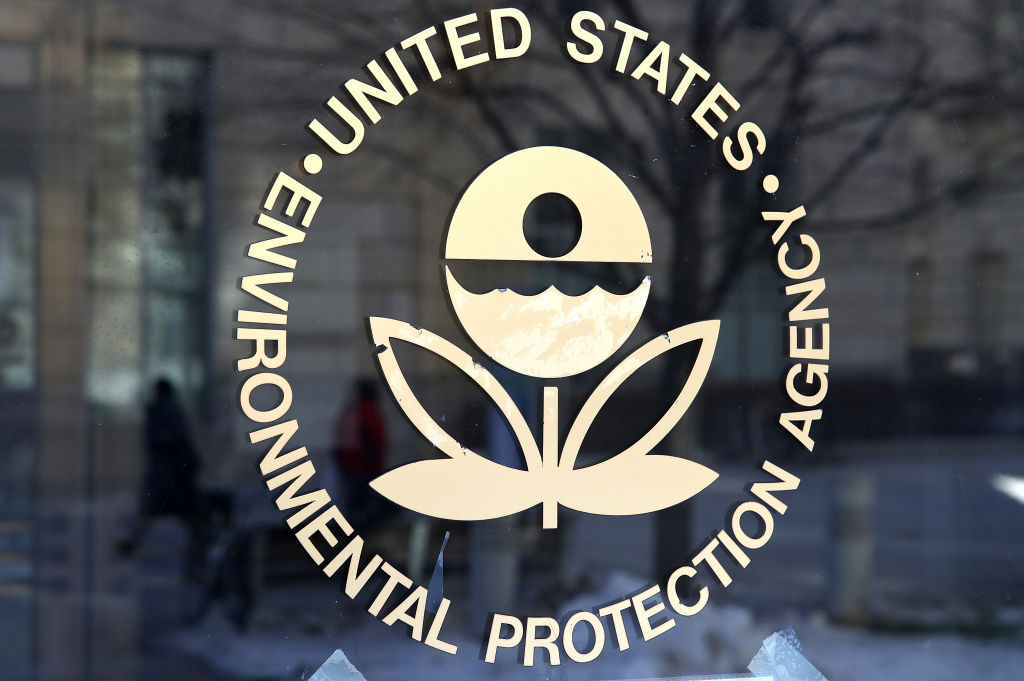Federal judge vacates Trump EPA lame-duck rule limiting scientific studies used in policymaking


A free daily email with the biggest news stories of the day – and the best features from TheWeek.com
You are now subscribed
Your newsletter sign-up was successful
One of the last things former President Donald Trump's Environmental Protection Agency (EPA) team did was finalize an administrative rule limiting which scientific research can be used to create public health policies. On Monday, a federal judge in Montana vacated the policy, enacted in early January, ruling that the EPA had improperly issued its rule under the Federal Housekeeping Statute, which applies only to procedural changes. The Biden administration had asked the judge, Brian Morris of the U.S. District Court in Great Falls, Montana, to scrap the ruling and send it back to the EPA for review.
Three environmental groups had sued the EPA over the rule, which would assign less weight to public health research that did not include raw data, sidelining studies that used personal medical data and other confidential information from human subjects. Trump's EPA officials argued that the rule would increase transparency and boost public confidence in the agency's environmental rule-making process. Critics said it was designed to reduce the influence of the best available science in crafting policy, limiting the government's ability to protect the public against pollution, harmful chemicals, and maybe even the coronavirus.
EPA spokeswoman Lindsay Hamilton said the Biden administration is "pleased" with Morris' ruling. "Monday's court decision, coming less than two weeks after the U.S. Court of Appeals for the District of Columbia Circuit struck down the 2019 rule that eased restrictions on power plants' carbon emissions, will make it easier for the new administration to unwind Trump-era environmental policies," The Washington Post notes.
The Week
Escape your echo chamber. Get the facts behind the news, plus analysis from multiple perspectives.

Sign up for The Week's Free Newsletters
From our morning news briefing to a weekly Good News Newsletter, get the best of The Week delivered directly to your inbox.
From our morning news briefing to a weekly Good News Newsletter, get the best of The Week delivered directly to your inbox.
A free daily email with the biggest news stories of the day – and the best features from TheWeek.com
Peter has worked as a news and culture writer and editor at The Week since the site's launch in 2008. He covers politics, world affairs, religion and cultural currents. His journalism career began as a copy editor at a financial newswire and has included editorial positions at The New York Times Magazine, Facts on File, and Oregon State University.
-
 6 exquisite homes with vast acreage
6 exquisite homes with vast acreageFeature Featuring an off-the-grid contemporary home in New Mexico and lakefront farmhouse in Massachusetts
-
 Film reviews: ‘Wuthering Heights,’ ‘Good Luck, Have Fun, Don’t Die,’ and ‘Sirat’
Film reviews: ‘Wuthering Heights,’ ‘Good Luck, Have Fun, Don’t Die,’ and ‘Sirat’Feature An inconvenient love torments a would-be couple, a gonzo time traveler seeks to save humanity from AI, and a father’s desperate search goes deeply sideways
-
 Political cartoons for February 16
Political cartoons for February 16Cartoons Monday’s political cartoons include President's Day, a valentine from the Epstein files, and more
-
 Key Bangladesh election returns old guard to power
Key Bangladesh election returns old guard to powerSpeed Read The Bangladesh Nationalist Party claimed a decisive victory
-
 Epstein files topple law CEO, roil UK government
Epstein files topple law CEO, roil UK governmentSpeed Read Peter Mandelson, Britain’s former ambassador to the US, is caught up in the scandal
-
 Iran and US prepare to meet after skirmishes
Iran and US prepare to meet after skirmishesSpeed Read The incident comes amid heightened tensions in the Middle East
-
 EU and India clinch trade pact amid US tariff war
EU and India clinch trade pact amid US tariff warSpeed Read The agreement will slash tariffs on most goods over the next decade
-
 Israel retrieves final hostage’s body from Gaza
Israel retrieves final hostage’s body from GazaSpeed Read The 24-year-old police officer was killed during the initial Hamas attack
-
 China’s Xi targets top general in growing purge
China’s Xi targets top general in growing purgeSpeed Read Zhang Youxia is being investigated over ‘grave violations’ of the law
-
 Panama and Canada are negotiating over a crucial copper mine
Panama and Canada are negotiating over a crucial copper mineIn the Spotlight Panama is set to make a final decision on the mine this summer
-
 Why Greenland’s natural resources are nearly impossible to mine
Why Greenland’s natural resources are nearly impossible to mineThe Explainer The country’s natural landscape makes the task extremely difficult
